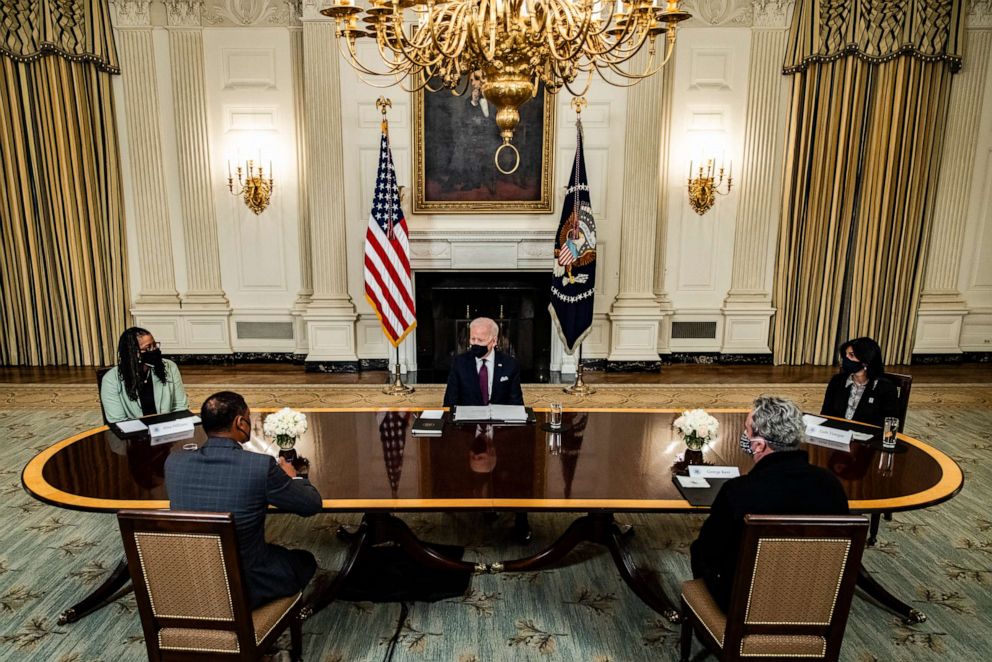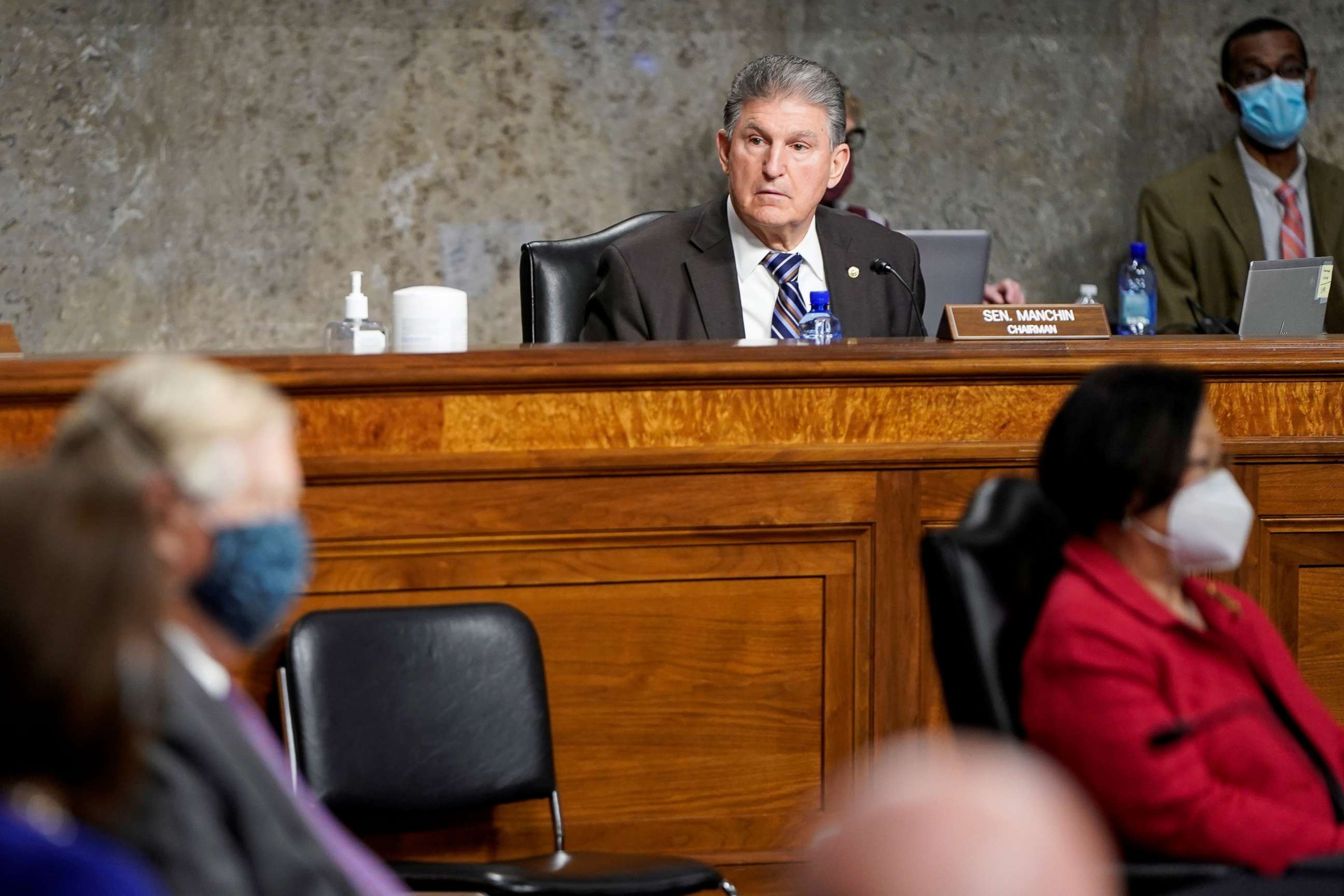Biden holds roundtable with people who would benefit from relief bill
On Friday afternoon, Biden hosted three guests for a roundtable to discuss what the passage of the COVID relief bill would mean for them as well as for their communities.
The people Biden spoke with shared their personal stories of struggle during the pandemic as Americans wait to find out what additional aid will be coming their way.
"People in our country are hurting right now, with less than two weeks from enhanced unemployment checks being cut out, and seven million kids don't have enough food -- 13 million people are behind in their rent," Biden said.

"It's gonna provide immediate relief for millions of people that are going to be able to use it in a very constructive way, and also grow the economy in the process," Biden promised of the package, which hit a snag on Friday over unemployment benefits.
"It is clearly, clearly necessary, a lifeline for getting the upper hand against COVID-19 and getting it under control. That isn't some academic discussion, it's about you. It's about people like you and families I grew up with all over America," he said.
Alma Williams, a paratransit driver from Greenbelt, Maryland, told the president "it's just a hard time, financially, mentally, emotionally, like across the board for children, adults, you know."
George Kerr, a Navy veteran who lost his home in a fire last year, has experienced housing instability worsened by the pandemic. A member of the LGBTQ community, he spoke not only about his own challenges, but the importance of the mental health services provided in the bill for LGBTQ seniors who are feeling isolated.
"Mental health is just a real important, and I'm glad to see there's a lot of money in there for mental health services, because it's incredibly important," Kerr said.
Lyda Vanegas, who helps run Mary's Center, which provides health care, education and social services to 60,000 people in the D.C. area, referred to George Kerr's experience and related it to what her own community is facing.
"He just breaks my heart because it's the same situation, they're losing jobs, that's the main thing, you know that. And with that, they have unstable housing, food insecurity, searching, traveling long distances to go and visit this site, the food distribution side. And that's, every day, they do long lines and the next day they have to do the same," she said of her clients.
-ABC News' Sarah Kolinovsky





